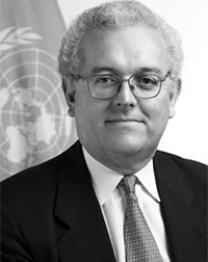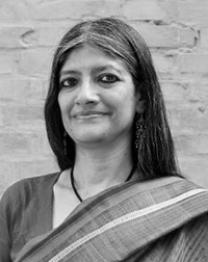
This webinar is the first of a four-part webinar series. The purpose of this series of webinars is to assess what this new consensus means and involves, particularly for developing countries. Tapping into the expertise of the recently launched Oxford Handbook on Industrial Policy, the webinar series will explore the challenges and areas of debate posed by this new consensus.
Background
Virtually all of today's advanced economies have completed their journey from widespread rural poverty to post-industrial wealth employing policies designed to shift the production structure towards higher productivity activities and sectors with progressively, better paid jobs and a greater upgrading potential. Such policies are conventionally called industrial policies.
From the late 1970s onwards, the debates between proponents and opponents of industrial policy became sharply ideological. In mainstream economic analysis, in the pronouncements of international development agencies, and in policy statements by Western governments, industrial policy, along with the idea that the state could have a role in effecting structural transformation fell into disrepute.
With governments everywhere increasingly concerned to accommodate footloose capital and trade, and investment rules narrowing the policy space available for policy action, the time it seemed had come to read the last rites on industrial policy. Still, the late industrializing economies in East Asia continued to employ industrial policies as part of their successful development stories while advanced economies would resort to similar instruments on a more ad hoc basis in response to specific economic challenges. Moreover, with adherence to neoliberal policies in developing countries showing few signs of delivering economic diversification, strong productivity growth or technological upgrading, and with many suffering premature deindustrialization and a growing informalization of economic activity, industrial policy began to return to the policy conversation, particularly with the weak recovery after the global financial crisis.
A joint UNCTAD-ILO volume published in 2015 concluded "discussion among economists and policy makers is now increasingly shifting away from whether or not to have industrial policy and towards a focus on the objectives and scope of industrial policies and "how to do it" in a way appropriate to each country`s conditions". UNCTAD`s Trade and Development Report 2016 laid out the case for bringing back industrial policy and began to collaborate with the OECD Development Centre on producing Productive Transformation Policy Reviews. UNCTAD's World Investment Report 2018 identified 84 countries (accounting for 90 per cent of global GDP) that had adopted formal industrial policies in the five years to 2018. A much-discussed IMF Working Paper in 2019 welcomed "The Return of the Policy That Shall Not Be Named".
Hence, whether in the context of meeting the SDGs, tackling the climate emergency, rewiring supply chains in response to the COVID-19 crisis or leveraging new digital technologies, industrial policy has returned to centre stage of debates over the direction of development strategy at the national level. International organizations have become more open to discussing industrial policy in developing countries. This is a new consensus across a broad spectrum of economists and policy makers on the on the relevance, desirability, and practicability of industrial policy.
Programme
Introduction:
- Richard Kozul-Wright, Director, Division on Globalization and Development Strategies, UNCTAD.
Moderator
- Jayati Ghosh, Professor of Economics at the University of Massachusetts at Amherst, USA, formerly at JNU, New Delhi, India.
Presenters:
- Ha-Joon Chang, Reader in the Political Economy of Development, Faculty of Economics, University of Cambridge.
- Mariana Mazzucato, Professor in the Economics of Innovation and Public Value, University College London, Founding director of the UCL Institute for Innovation and Public Purpose.
- José Antonio Ocampo, Director of the Economic and Political Development Concentration in the School of International and Public Affairs, Member of the Committee on Global Thought and co-President of the Initiative for Policy Dialogue, Columbia University.
- Arkebe Oqubay, Ethiopian Senior Minister, Professor of Practice at the University of Johannesburg and an Overseas Development Institute Distinguished Fellow Ethiopia.
- Robert Pollin, Distinguished University Professor of Economics and Co-Director of the Political Economy Research Institute (PERI), University of Massachusetts-Amherst.
Question & Answer Session
Closing remarks
Watch webinar recording

Richard Kozul-Wright is the director of UNCTAD’s globalization and development strategies division.
He has worked at the UN in both New York and Geneva and published widely on economic issues, including in the Economic Journal, the Cambridge Journal of Economics, the Journal of Development Studies, and the Oxford Review of Economic Policy.
He has co-written books such as The Resistible Rise of Market Fundamentalism with Paul Rayment and co-edited volumes of Transnational Corporations and the Global Economy, Economic Insecurity and Development, Securing Peace, Climate Protection and Development and Industrial Policy.
He also co-edited Transforming Economies: Making Industrial Policy Work for Growth, Jobs and Development with the International Labour Organization.
He holds a PhD degree in economics from the University of Cambridge in the UK.
Jayati Ghosh is Professor of Economics at the University of Massachusetts at Amherst, USA. Before that she taught economics at Jawaharlal Nehru University, New Delhi for nearly 35 years.
She has authored and/or edited 19 books, including Never Done and Poorly Paid: Women’s Work in Globalising India (Women Unlimited, New Delhi 2009); the co-edited Elgar Handbook of Alternative Theories of Economic Development (2014); Demonetisation Decoded (Routledge 2017), and Women Workers in the Informal Economy (Routledge forthcoming) and nearly 200 scholarly articles. She has received several prizes, including for distinguished contributions to the social sciences in India in 2015; the International Labour Organisation’s Decent Work Research Prize for 2010; the NordSud Prize for Social Sciences 2010, Italy.
She has advised governments in India and other countries, including as Chairperson of the Andhra Pradesh Commission on Farmers’ Welfare in 2004, and Member of the National Knowledge Commission of India (2005-09). She is the Executive Secretary of International Development Economics Associates, an international network of heterodox development economists.
She has consulted for international organizations including ILO, UNDP, UNCTAD, UN-DESA, UNRISD and UN Women and is a member of several international commissions, including the International Commission for the Reform of International Corporate Taxation (ICRICT) and the Commission for Global Economic Transformation of INET. She writes regularly for newspapers, journals and blogs.

Dr Ha-Joon Chang is a University Reader in the Political Economy of Development at the University of Cambridge. Chang is the author of several widely discussed policy books, most notably Kicking Away the Ladder: Development Strategy in Historical Perspective (2002). In 2013, Prospect magazine ranked Chang as one of the top 20 World Thinkers.
He has served as a consultant to the World Bank, the Asian Development Bank, the European Investment Bank, as well as to Oxfam and various United Nations agencies. He is also a fellow at the Center for Economic and Policy Research in Washington, D.C. In addition, Chang serves on the advisory board of Academics Stand Against Poverty (ASAP).

Mariana Mazzucato is Professor in the Economics of Innovation and Public Value at University College London, where she is Founding Director of the UCL Institute for Innovation & Public Purpose (IIPP).
She received her BA from Tufts University and her MA and PhD from the Graduate Faculty of the New School for Social Research. Her previous posts include the RM Phillips Professorial Chair at the Science Policy Research Unit at Sussex University. She is a selected fellow of the UK's Academy of Social Sciences and of the Italian National Science Academy (Lincei).
She is winner of international prizes including the 2020 John von Neumann Award, the 2019 All European Academies Madame de Staël Prize for Cultural Values, and the 2018 Leontief Prize for Advancing the Frontiers of Economic Thought. She was named as one of the '3 most important thinkers about innovation' by The New Republic, one of the 50 most creative people in business in 2020 by Fast Company, and one of the 25 leaders shaping the future of capitalism by WIRED.

José Antonio Ocampo is director of the Economic and Political Development Concentration in the School of International and Public Affairs, Member of the Committee on Global Thought and co-President of the Initiative for Policy Dialogue at Columbia University. He is also the Chair of the Committee for Development Policy, an expert committee of the United Nations Economic and Social Council (ECOSOC). In 2012–2013 he chaired the panel created by the IMF Board to review the activities of the IMF’s Independent Evaluation Office; in 2008–2010, he served as co-director of the UNDP/OAS Project on “Agenda for a Citizens’ Democracy in Latin America”; and in 2009 a Member of the Commission of Experts of the UN General Assembly on Reforms of the International Monetary and Financial System.
Prior to his appointment, Ocampo served in a number of positions in the United Nations and the Government of Colombia, most notably as United Nations Under-Secretary General for Economic and Social Affairs; Executive Secretary of the Economic Commission for Latin America and the Caribbean (ECLAC); Minister of Finance and Public Credit, Chairman of the Board of Banco del República (Central Bank of Colombia); Director of the National Planning Department (Minister of Planning); Minister of Agriculture and Rural Development, and Executive Director of FEDESARROLLO.
Ocampo has published extensively on macroeconomic theory and policy, international financial issues, economic and social development, international trade, and Colombian and Latin American economic history.
His Excellency Dr Arkebe Oqubay is a Senior Minister and Special Adviser to the Ethiopian Prime Minister. He and has been at the centre of policymaking and government for over 30 years, leading the economic transformation of Ethiopia and championing Africa’s industrialization and economic transformation. He is the former mayor of Addis Ababa, and was awarded the ABN Best African Mayor of 2006 Award, and was a finalist in the World Mayor Award 2006 for transforming the city.
He has also served and continues to serve as chair and vice-chair on the boards of several leading public corporations. His ability to combine the theoretical understanding of the process of industrialization with the practice of policy implementation has earned him recognition by the NewAfrican as one of the 100 Most Influential Africans of 2016 and a “leading thinker on Africa’s strategic development”.
Dr Arkebe is Professor of Practice at the University of Johannesburg (South Africa), a Visiting Professor at Sciences Po (Paris) and Nanyang Technological University (Singapore). He is a UNU-WIDER Honorary Research Fellow, a Distinguished Fellow at the London-based think-tank, the Overseas Development Institute (ODI), and Senior Research Associate at the Vienna Institute of International Economic Studies. He has an extensive list of publications on topics including economic development, technological learning and industrial policy.





